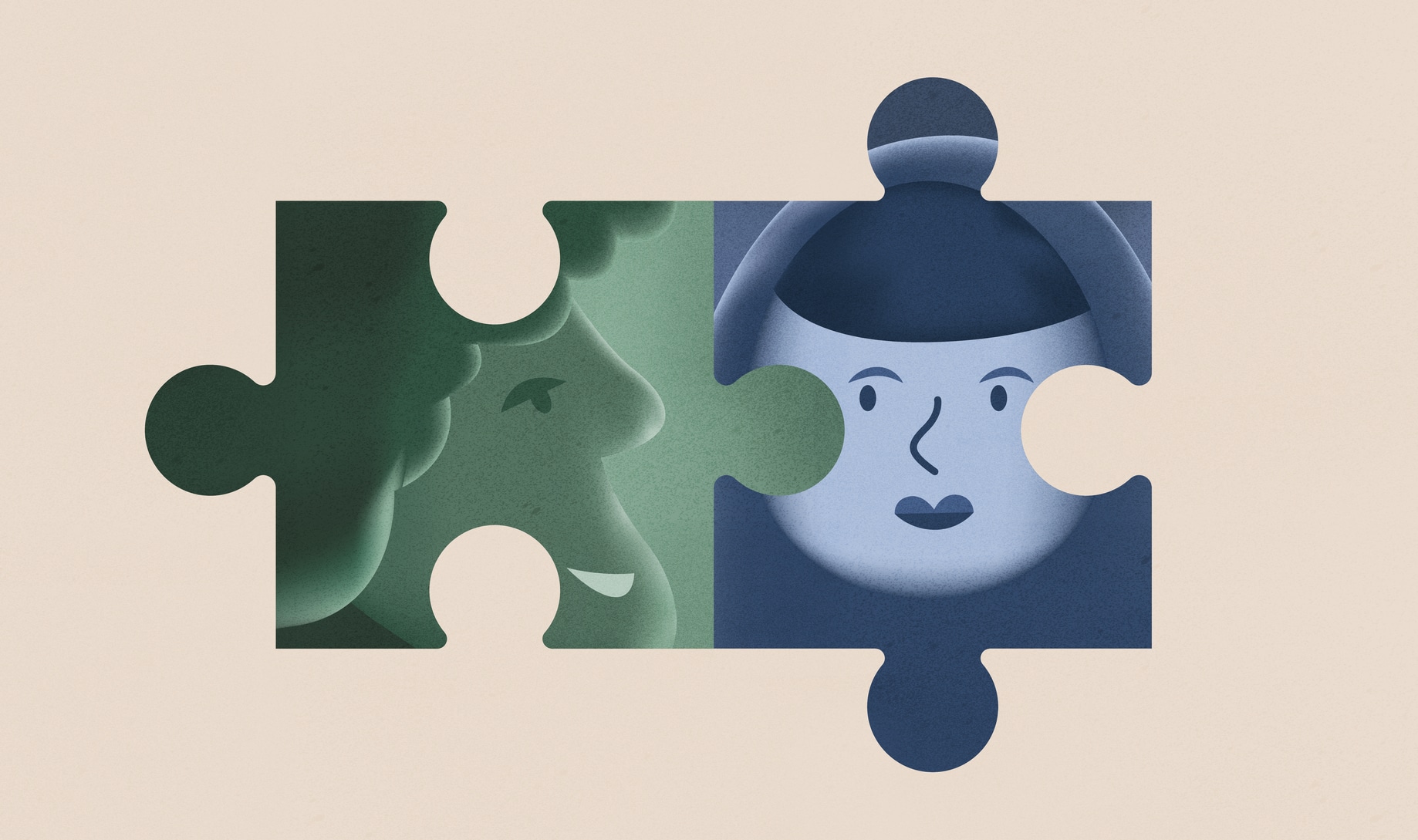
High-functioning depression, though not an official diagnosis, is a real and ever-present challenge for many. People with functioning depression may manage to keep up with daily responsibilities and put on a brave face, but inside feel overwhelmed and exhausted. The good news? Help is available. With the right support, you can find relief and rediscover joy.
What is high-functioning depression?
The term “high-functioning depression” can be misleading because it suggests that people who seem to have it all together don’t need help. In reality, they may be struggling mightily. High-functioning depression symptoms can be similar to clinical depression symptoms, and just as challenging, even if they outwardly appear less intense.
You may experience some or many of these depression symptoms:
- Regularly feeling sad or empty – Even when you’re surrounded by friends or loved ones, you feel lonely or distressed.
- Hopelessness or a negative outlook – You believe that no matter how hard you try, things will never improve.
- Irritability, frustration, or restlessness – Snapping at loved ones over small things or feeling a restless energy that you can’t shake.
- Feeling guilty or worthless – After a minor mistake, for example, you believe you’re incapable of doing anything right.
- Losing interest in hobbies and activities – You were once passionate about painting, dancing, sports, or another hobby, and now you’ve stopped making time for it.
- Fatigue or a constant lack of energy – You feel exhausted and struggle to get through the day even after a full night’s sleep.
- Trouble concentrating, remembering, or making decisions – You often forget appointments or tasks and find it difficult to focus at work.
- Sleep issues, such as insomnia or oversleeping – It’s hard to fall asleep at night, you wake up too early, or sleep for several hours and still feel tired.
- Appetite changes or unplanned weight fluctuations – You’ve lost your appetite or overeat.
- Physical aches, headaches, cramps, or digestive problems – You have frequent headaches or stomach aches with no clear medical cause.
- Thoughts of harming yourself – Sometimes you feel like life isn’t worth living or think about ways to end your pain.
One of the main signs of high-functioning depression is the ability to mask these hardships and keep functioning, but this doesn’t diminish the profound impact it has on your well-being.
Causes of high-functioning depression symptoms
Mental health disorders aren’t caused by one factor. Often, it’s a combination of several challenges such as:
- A family history of depression or other mood disorders
- Imbalances in brain chemicals (neurotransmitters) such as serotonin, norepinephrine, and dopamine
- Changes in brain structure or function, particularly in areas involved in mood regulation
- Chronic stress or exposure to stressful life events (such as loss of a loved one, prolonged illness, or financial problems)
- Adverse childhood experiences, such as abuse or neglect
- Social isolation or lack of supportive relationships
- The presence of other mental health disorders such as anxiety or substance use disorders
- Chronic illnesses or medical conditions that cause ongoing pain or fatigue
Why do I need help if I’m “high-functioning?”
Even if you feel you have a handle on functional depression, treatment is crucial for maintaining a good quality of life and preventing symptoms from worsening. Living in a constant state of managing just enough to get by can keep you from doing your best or finding joy, which isn’t sustainable long term.
Untreated high-functioning depression can lead to:
- Worsening symptoms – Depression symptoms can become more severe without treatment, potentially leading to more complex mental health conditions.
- Physical health issues – Chronic stress and untreated depression can contribute to physical health problems like cardiovascular issues, a weakened immune system, and chronic pain.
- Lower quality of life – Over time, the joy and satisfaction you find in daily activities can diminish, leading to a bleak outlook on life.
- Strained relationships – The hidden struggle of functional depression can cause irritability and emotional withdrawal, affecting relationships with friends, family, and colleagues.
- Risk of substance misuse – Some people may turn to alcohol or drugs in an attempt to cope with symptoms, leading to additional health and social problems.
- Impaired decision-making – Depression can affect judgment, impacting both your personal and professional life.
- Burnout – Continually pushing through depressive symptoms can lead to severe burnout, making it harder to maintain your responsibilities over time.
Operating under these constraints can hold you back from true fulfillment or happiness. However, high-functioning depression treatment can give you coping strategies, support, and tools to manage your symptoms effectively and embrace a more fulfilling life.
Helping a loved one with high-functioning depression
If you notice signs of high-functioning depression in a loved one, approach them with empathy and support. Normalize the conversation by acknowledging the tough times everyone faces and expressing concern for their well-being. You might say something like, “It seems like you’re having a hard time right now. I read about how common depression is these days and wonder if you might consider getting it checked out.”
Discussing quality of life can also be a practical way to start a dialogue. Asking questions like, “Are you enjoying life? Is there any joy in it? If not, what can we do about that?” Supporting them in finding moments of comfort can help people cope with depressive symptoms.
High-functioning depression treatment
If you need support, you aren’t alone. High-functioning depression treatment can improve your quality of life and alleviate symptoms. Here are a few approaches that can help.
Assessment
Treatment often starts with an assessment to determine the best approaches for your specific needs. This assessment can include psychological evaluations, interviews, and questionnaires to understand your mental health status. It helps determine whether therapy, medication, or a combination of both may be most effective.
Therapy
Mental health coaching or therapy helps you develop strategies to manage functional depression symptoms and boost your energy levels and focus. High-functioning depression treatment also involves setting realistic goals and understanding that it’s OK to not always be at your best. Taking a step back and not pushing yourself to the limit is crucial for long-term well-being. By giving yourself this space, you allow your brain and body to recover, helping you function better in the long run.
Self-care
People with functioning depression often push themselves to maintain high standards in all areas of life, which can worsen their depressive symptoms over time. High-functioning depression treatment encourages you to allow yourself to take breaks and not overextend. This involves self-care activities that bring comfort and joy, like connecting with friends, being in nature, or making time for hobbies. These activities won’t solve all of your problems, but they can provide some relief and make it easier to handle daily tasks.
Depression is treatable
If you’re dealing with high-functioning depression, it’s crucial to know that you don’t have to keep pushing yourself to the brink just to get through each day. With the right help, life can be easier, and you can find more balance and joy in your everyday activities. Reach out, take that first step, and know that better days are possible.
Get professional support for depression.
You can get started today if your employer offers Lyra.
Sign up nowPrioritize your emotional well‑being.
Join Lyra today

